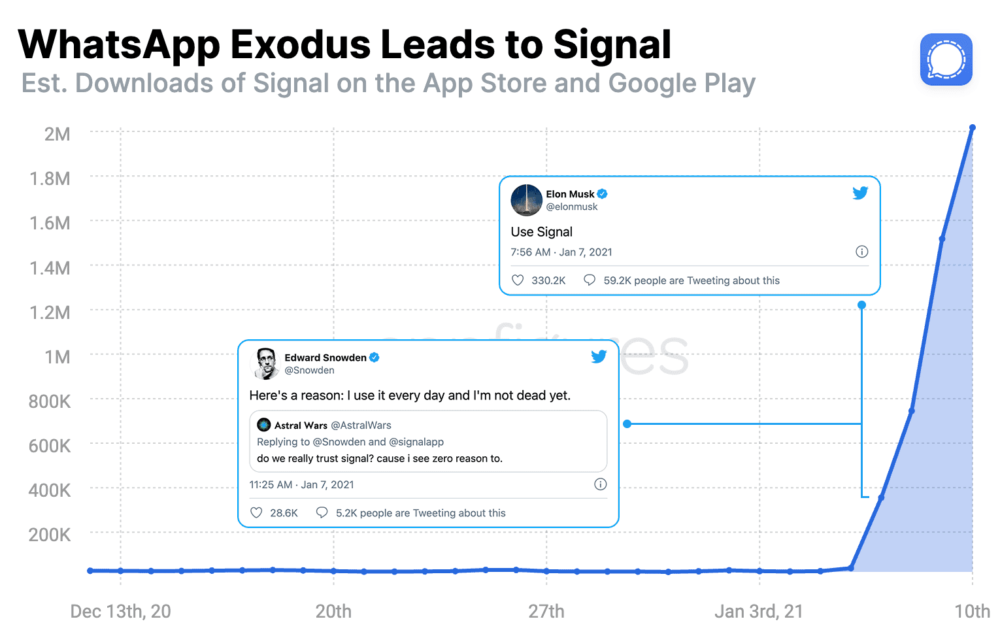The East German Stasi Archives. Image Credit: Wired Magazine
Apple is known for anti-competitive behaviour
It’s well known that Apple takes advantage of its massive user base on iOS and the App Store to force businesses who monetise their users via in-app purchases to pay their astronomical fees (30%) on all of their mobile revenue.
Epic Games were the first to really take on Apple with a big lawsuit after they were kicked from the App Store for offering direct payments via their website, prompting this quite amusing parody of Apple’s infamous 1984 commercial. Their very public spat with Spotify over the same issue is another.
However, a lesser known, and arguably more petty, example of Apple using their control of the App Store to stifle competition is when they purged parental control apps listed in the App Store to benefit their own product, Screen Time.
This had a huge impact on one of our clients, Kidslox. The Kidslox founder, Viktor Yevpak, actually succeeded in filing and winning a lawsuit against them that lasted two years in order to simply list on the App Store again. Even now that they are live again (one of just a handful of parental control apps left in the market), Apple are still restricting developers access to their Privacy API, giving their Screen Time product an unfair advantage over the competition by essentially limiting the features they can build.
All of this combined shows why Apple would be very keen to ensure that their image in the eyes of the consumer is one of a brand that defends its customers from evil and has their best intentions at heart.
The saying goes that those in glass houses shouldn’t throw stones and Facebook’s record is hardly clean in comparison to Apple’s. Facebook and Google have been investigated for anti-competitive practice, with Google being slapped with huge fines by the European Commission last year and Facebook’s acquisitions of Instagram and Whatsapp under the microscope.
However, it’s important to understand that Apple is just as bad as the rest of the big tech firms for abusing its position of power.
Why the fuss around IOS14 if everyone agrees privacy first is the right approach?
Much of the industry is already on board with improving user privacy and moving away from the reliance on cookie based tracking, but the reason there has been so much objection from Facebook in particular around the upcoming iOS14 announcement is due to the lack of collaboration from Apple to create a solution that works for the industry as it transitions to the new era of anonymous tracking over the next couple of years.
Digital advertising is the lifeblood of the online economy, which in the past 12 months has been the one of the few shining lights in what has been a pretty bleak global economic landscape. Many businesses are reinventing themselves and finding new avenues for growth online, largely enabled by digital ad publishers such as Facebook and Google and by the ease and flexibility of platforms like Shopify, who see their main goal as being to “arm the rebels” against incumbents like Amazon, allowing businesses to take control of their growth online.
Yes, there is the argument that you shouldn’t be relying on paid traffic alone to grow your business, with Facebook and Google ad spend being dubbed a “tax” by many businesses who feel trapped in the cycle of only being able to drive their growth through paid acquisition. However, digital ads should be seen as only one part of your marketing mix which gives you the flexibility and confidence to scale when the market conditions are right and pull back when they aren’t.
So with this context in mind, Apple deciding to significantly change the measurement policies and requirements for apps in the iOS App Store, without collaborating with the major players who drive the eCommerce industry, has a profound impact on virtually every business on the planet which has some kind of revenue coming via the internet, not just those with an app on iOS.
It is fascinating that they have refused to collaborate with the likes of Facebook and Google in building a solution that will both preserve the effectiveness of personalised advertising (which isn’t going to go away any time soon) and improve and protect user privacy on the iOS ecosystem.
We can only speculate as to why that is, but there are rumours of Apple looking to develop their own search engine for Safari (link behind a paywall), which would make limiting Google’s ability to track conversions for iOS users a serious competitive advantage.Currently, Google pay $8billion+ per year to Apple to be the default search engine for iOS devices. This deal is now under scrutiny by the US Justice Department and, again rumour has it, that this deal hasn’t been renewed for 2021. Whether it is due to the lawsuit from the Justice Department, or because Apple wants to compete with Google in the search engine market, remains to be seen.
So what happens next?
The writing has been on the wall for some time when it comes to cookie based tracking for personalised ads and the iOS14 changes are just forcing the industry as a whole to come up with a better solution sooner than expected.
However, it’s important to know that Apple isn’t the instigator of this move towards greater privacy, they are using the trend and amplifying it for the benefit of their own advertising offering, with Facebook and other digital ad networks which rely on cookie based tracking as the collateral damage.
Apple ultimately holds all the cards in this situation, unless industry regulators get involved, as they have the power to simply remove any apps which don’t comply with their policies from the App Store, which is a perilous position to be in if, like Facebook, you and the businesses who advertise on your platform rely on iOS users for their revenue.
2021 is shaping up to be a year of significant change to the world of digital marketing. Business owners and marketers need to get the tools in place to effectively measure their marketing mix and get to grips with the nuances of each channel, without having to be over reliant on 3rd party data sources.
I expect to see some significant developments in anonymous cross device conversion tracking in the next 12 months, along with a big push from Facebook and other ad networks such as Tik Tok to build out their commerce functions, more robust server side event tracking through their partnerships with Shopify (who are tipped to benefit the whole situation), and more eCommerce businesses starting to build their own attribution or media mix models.
With every challenge comes an opportunity, the question is whether you can move fast enough to tackle the problem head on and acclimatise to the new normal as fast as possible.






